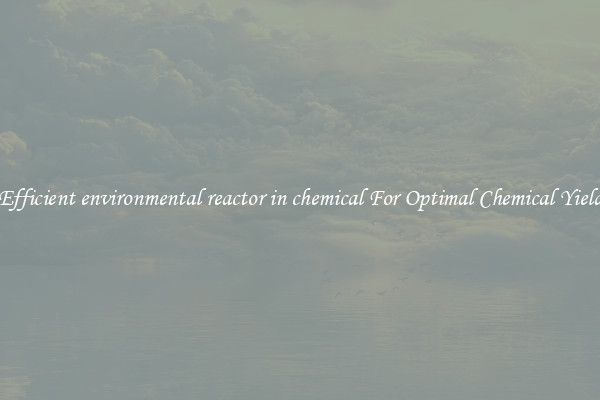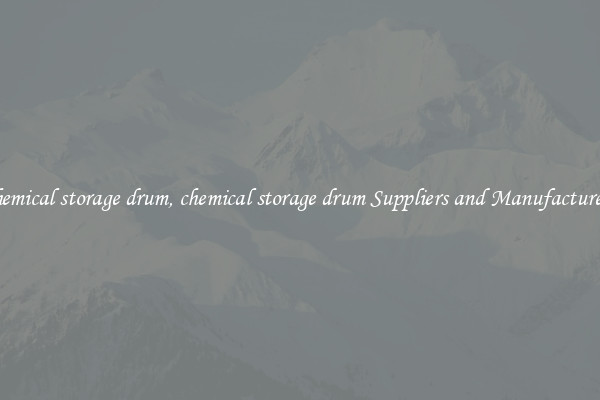Efficient environmental reactor in chemical For Optimal Chemical Yield
An efficient environmental reactor in chemical processes plays a vital role in achieving optimal chemical yield. Chemical reactors are devices designed and utilized to carry out chemical reactions, transforming starting material into desired products. The efficiency of these reactors is crucial for maximum yield and reduced environmental impact.

One key factor in achieving an efficient reactor is the design. Reactors must be designed to provide adequate mixing while ensuring proper heat transfer. Mixing allows for homogeneity, ensuring that all reactants come into contact with each other, leading to higher reaction rates and ultimately, higher yields. On the other hand, heat transfer is essential to maintain the reaction at the desired temperature, avoiding unwanted side reactions or decomposition.
Furthermore, the choice of reactor type is essential for optimal chemical yield. Different chemical reactions may require different types of reactors such as batch reactors, continuous flow reactors, or even more specialized reactor designs. Each reactor type has its advantages and limitations, and optimization depends on the specific reaction at hand. For instance, continuous flow reactors are excellent for reactions requiring precise control of residence time and continuous addition of reactants, while batch reactors are suitable for small-scale reactions or reactions with changing conditions.
In recent years, innovative reactor designs have emerged to enhance efficiency and yield. One such example is microreactor technology. Microreactors are small-scale devices that provide excellent heat and mass transfer due to the high surface-area-to-volume ratio. This design allows for faster heat transfer and efficient mixing, resulting in higher yields. Additionally, microreactors often offer better control and safety features, making them an attractive option for chemical reactions.
Efficient environmental reactors in chemical processes also consider sustainability and decreased environmental impact. Green chemistry principles aim to minimize waste generation, reduce energy requirements, and utilize environmentally benign solvents. Designing reactors that optimize chemical yield while adhering to these principles is crucial in today's environmentally conscious world. Reactors can be constructed with materials that promote catalytic activity, reducing the need for excessive reagents and minimizing waste generation. Additionally, the use of renewable energy sources, process intensification, and recycling can contribute to sustainable and efficient reactor design.
In conclusion, an efficient environmental reactor in chemical processes is essential for optimal chemical yield. The design of the reactor, considering factors such as mixing and heat transfer, plays a significant role in achieving higher yields. The choice of reactor type also influences efficiency, with options ranging from batch reactors to microreactors. Furthermore, sustainability and reduced environmental impact are critical considerations in contemporary reactor design, aligning with green chemistry principles. By embracing innovative reactor designs and incorporating sustainable practices, chemical processes can achieve optimal yields while minimizing their ecological footprint.

View details

View details

View details

View details








